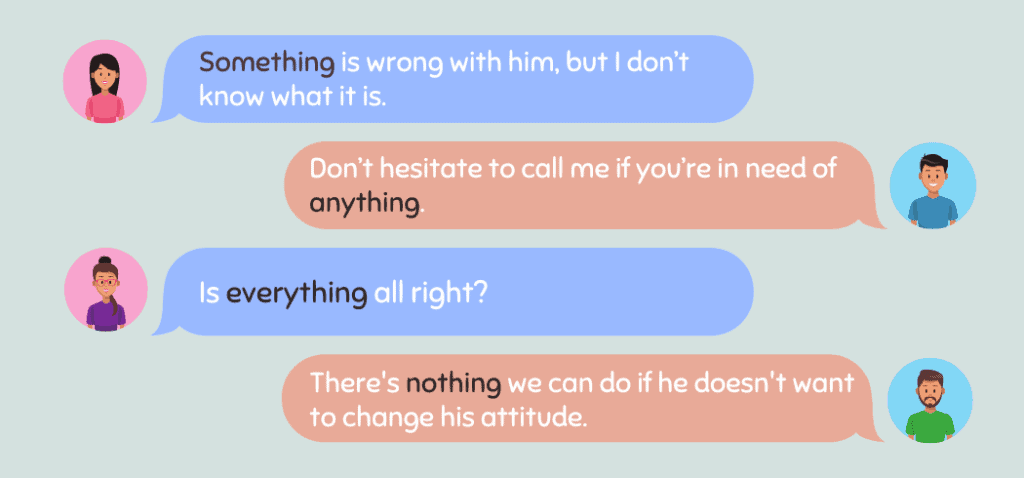Some English speakers and writers need clarification on the indefinite pronouns something, anything, nothing, and everything. They are quite similar but different in meanings.
I’ll teach you anything and everything about these indefinite pronouns. Find out the difference between something, anything, nothing, and everything, then answer the worksheet I whipped up.
Difference Between Something, Anything, Nothing & Everything

Something, anything, nothing, and everything are all indefinite pronouns. They are all treated as singular, so we use them with a singular verb.
Something
Something means an unknown thing, and we use it in positive sentences. Many experts don’t recommend using this indefinite pronoun in negative sentences and questions. Here are some examples of something in a sentence.
- I saw Mark give Nicole something.
- Something is wrong with him, but I don’t know what it is.
Anything
Anything means an object, animal, or idea of any kind. Use it in negative, interrogative, and positive sentences. Here are some examples.
- I will do anything you want me to do.
- Don’t hesitate to call me if you’re in need of anything.
- Is there anything I can help you with?
Anything can also be used as an alternative for something in negatives and questions. For example:
- Can I get you anything?
- I don’t know anything about the topic.
Nothing
Nothing means not anything or no single thing. We use it as the subject of a sentence but not with a negative verb. Otherwise, it will create double negative sentences. For example:
- Nothing is impossible if you work hard.
- There’s nothing in my hands.
Everything
Everything refers to all things but is still singular. Use them in affirmative, negative, and interrogative sentences when you aim to be inclusive. Consider these examples.
- Everything changes.
- Should we change everything about the plan?
- We cannot do everything.
You can also use everything to refer to a specific situation or life in general. For example:
- Is everything all right?
- Everything is fine at home.
This indefinite pronoun also refers to the most important thing in your life. Here are some sentence examples.
- Money is everything for greedy investors.
- My wife is everything to me.
Reviewing Indefinite Pronouns
Words like something, nothing, everything, and anything may seem identical, but their uses differ. Their only similarity is that they are singular indefinite pronouns that refer to things, animals, and ideas. Remember:
- Something means an unknown thing.
- Anything means any thing.
- Nothing means not anything.
- Everything means all things.